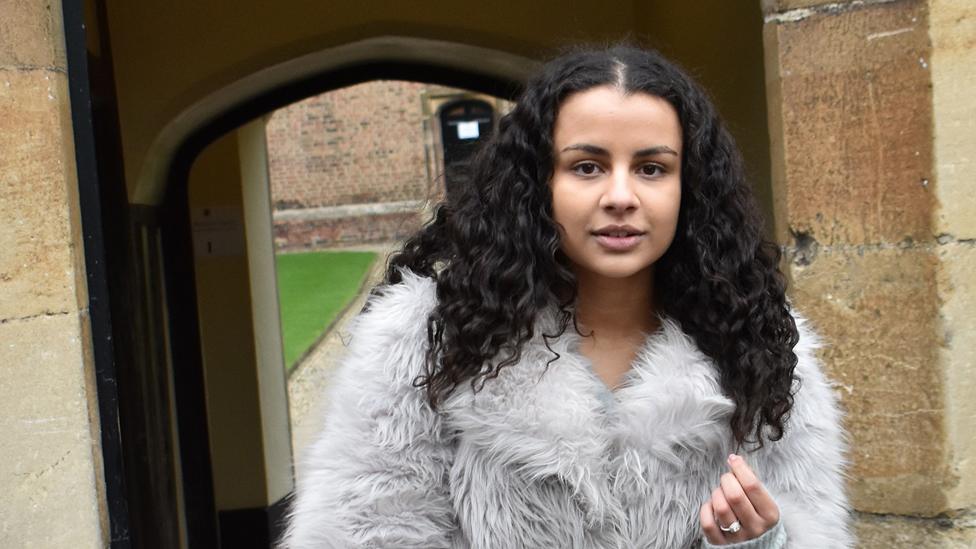Lord Woolley becomes first black man to head Oxbridge college
- Published
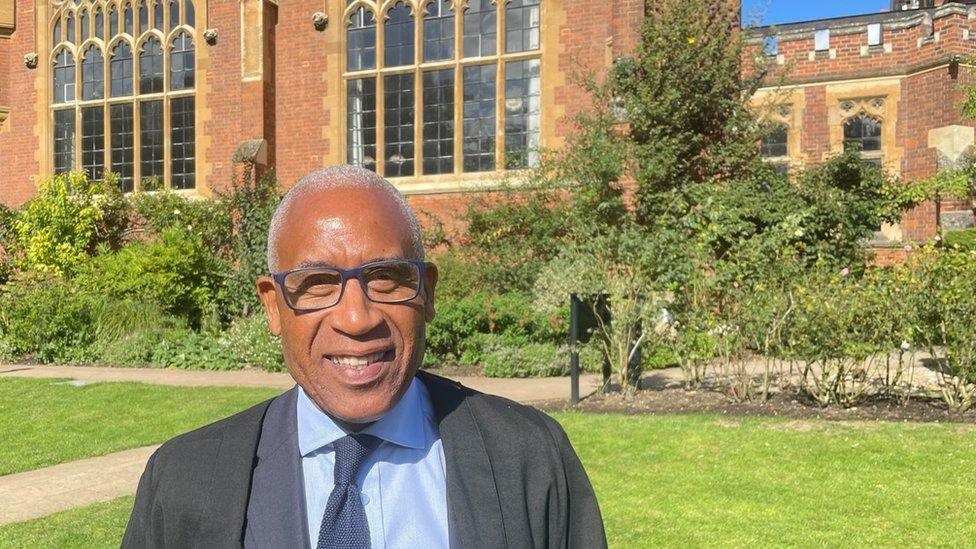
Simon Woolley was elected to the role of principal of Homerton College in April
A political and equalities activist has become the first black man to lead an Oxbridge college.
Lord Simon Woolley, founding director of campaign group Operation Black Vote, external, has become the principal of Cambridge University's Homerton College, external.
The peer said he would fund two full college bursaries for underprivileged students each year.
Lord Woolley grew up on a Leicester council estate and left school without any A-levels.
The cross-party peer, who was fostered and adopted as a child, later returned to education and gained a degree and a masters and is a former Equality and Human Rights Commissioner.
He is the third black person to be elected as head of a college at Cambridge or Oxford.
Sonita Alleyne was elected as head of Jesus College, Cambridge in 2019 and Baroness Amos at University College, Oxford in 2020.
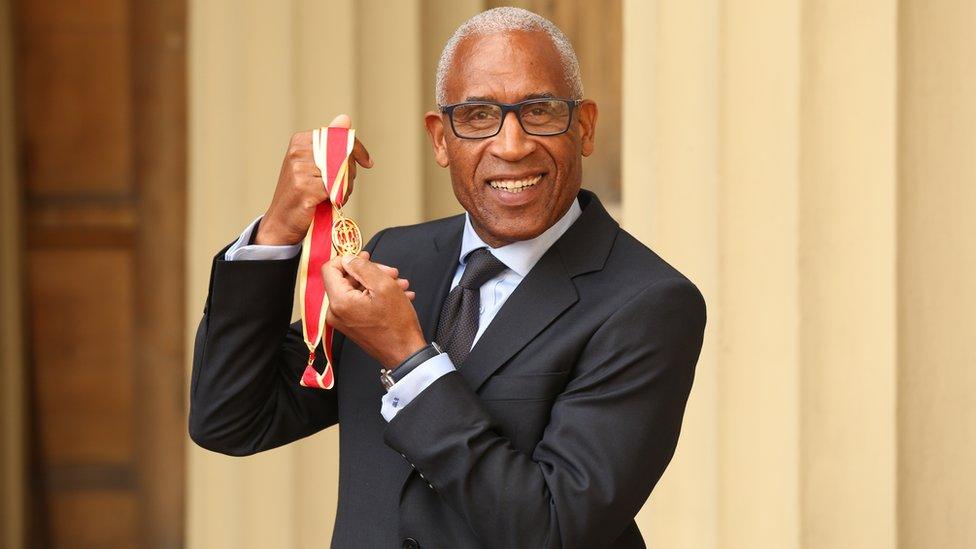
Simon Woolley was knighted in the Queen’s Birthday Honours in June 2019 and by December became a life peer
Lord Woolley said he was "honoured and humbled to have such a fantastic role at this wonderful college".
Speaking on his first day as principal, he said: "It's a great day... it's historic, for me, for the college - it's Black History Month too - so I'm on cloud nine."
He described it as "a great journey... of inclusivity... we all belong".
"To be principal, to be part of the leadership team, is a great honour," Lord Woolley said.
"Being the first black male to head an Oxbridge college is a huge honour. I follow in the footsteps of Sonita Alleyne and Baroness Amos - the black women, they were out there first - and that's great."
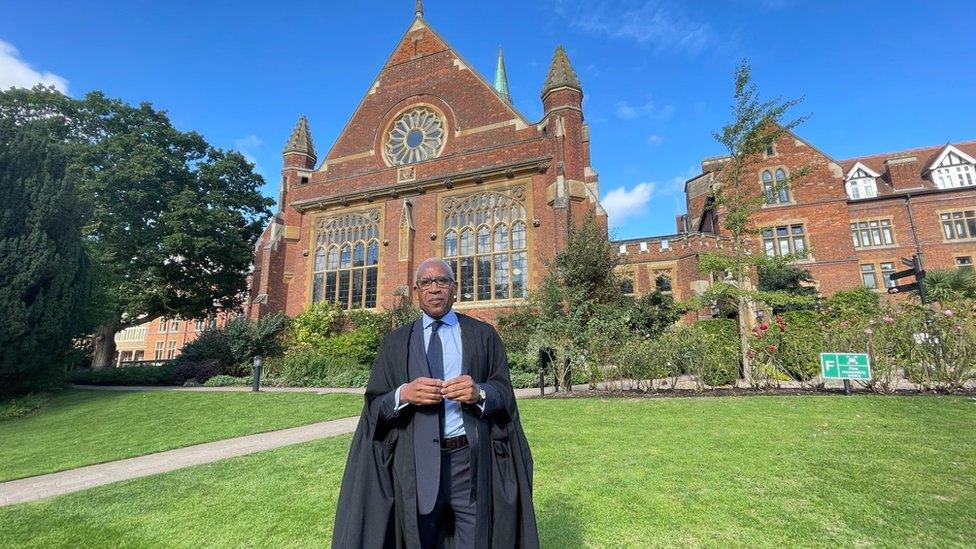
Lord Woolley described his new role as "a great honour"
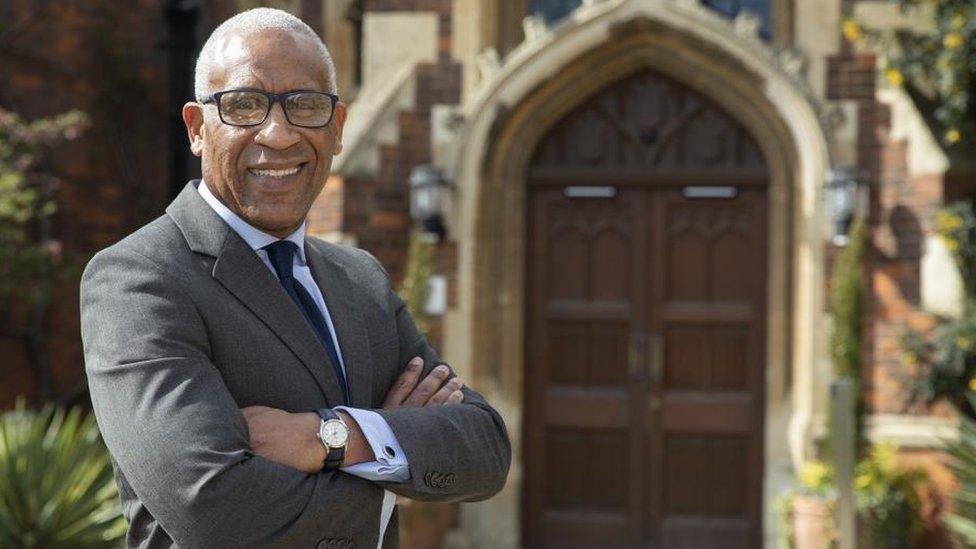
He will support two bursaries for students at the college each year
The bursaries, which are available to less well-off students, would be awarded on a sliding scale according to household income.
The standard full bursary is £3,500, and additional help was available for students in special need.
They do not have to be repaid, unlike a standard student loan.
Lord Woolley described the scheme as "a brilliant way to help level the playing field for disadvantaged students".
"I want my donation to Homerton to be a signal to all those - black kids, white working-class kids, the traveller community, council house kids like me - who might worry about the cost of university, to say that there is help available."

Find BBC News: East of England on Facebook, external, Instagram, external and Twitter, external. If you have a story suggestion email eastofenglandnews@bbc.co.uk, external
- Published1 April 2021

- Published27 June 2019

- Published22 January 2019
